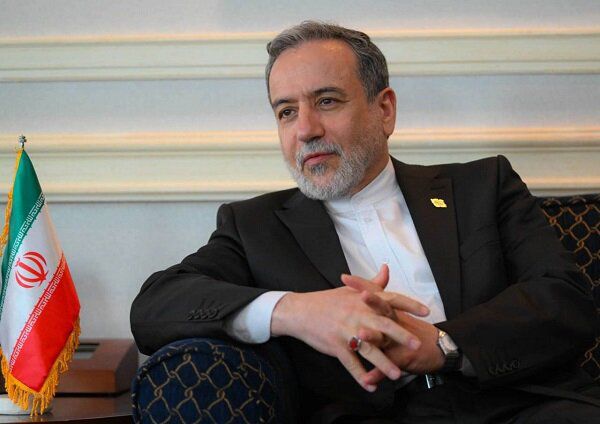Stating that negotiations with three European countries are continuing, the Foreign Minister said: "The Europeans made a big mistake, they went towards the trigger mechanism and made the job more difficult."
According to Ashura News, quoted by Mehr News Agency, Seyyed Abbas Araghchi, the Minister of Foreign Affairs of our country, stated today, Saturday, at the "National Conference on Capabilities and Investment Opportunities of Iran's Free and Trade Zones": The Shenzhen Free Zone was initially a small village whose main occupation was fishing. After China faced international pressure, it chose this area and today it is considered one of the technology and trade poles. We are also in similar conditions, and history has shown that nations that took the initiative instead of surrendering have been able to pave the way for progress.
He added: Our country is facing multi-layered and extensive sanctions, and its effects on people's lives are evident; but the sanctions should not be presented as an apocalyptic picture. The sanctions aimed to paralyze Iran, but the reality is that Iran is still standing strong. The consequences of sanctions cannot be ignored, but two mistakes should not be made; one is to deny the sanctions and be indifferent, and the other is to surrender to them. The right way is realism.
Araqi clarified: Not all of our difficulties are rooted in sanctions, and some of them are due to domestic issues. Investors need services and we have many shortcomings in this area. Some of the restrictions are also due to the conditions of economic war, and the goal should be to prevent these restrictions from becoming permanent.
The Foreign Minister noted: The government has a duty to pave the way for investment and, along with that, strengthen resilience against external pressures. Without the private sector, no economic policy will progress, and free zones play a key role in the economy of any country.
He continued: Iran is at the crossroads of global trade and has advantages that few countries have at the same time. Even under sanctions, countries continue to talk to us, and there are many economic opportunities.
Araqchi added: The Ministry of Foreign Affairs considers itself committed to putting diplomacy at the service of economic development. The goal of the Deputy for Economic Diplomacy is to support producers and investors. We are preparing a foreign policy annex for each free zone, which will serve as an operational document that will specify which of our missions abroad each zone will be supported by and which international meetings it will be present at. Logistical and investment capacities will also be specified in this document. The goal is to create an organic connection between the free zones and the diplomatic service so that embassies can identify economic opportunities and remove obstacles.
He said: “Investors need confidence, and we at the Foreign Ministry are moving in this direction. Free zones can become a highway for economic transactions.”
Araqchi continued by addressing the issue of sanctions and negotiations, adding: “One of the missions of the Foreign Ministry is to try to lift sanctions, which is done through negotiations. We made a plan in the new government and negotiations began. Five rounds of negotiations were held, and before the sixth round, the regime launched a military aggression and the United States joined in. After this war and the heroic defense of the Iranian nation, negotiations need a new form and dimensions, and we are designing this path.”
Referring to relations with the International Atomic Energy Agency, he said: "Our relations with the Agency were turbulent after the attack and the relations cannot be the same as before. My colleagues in Vienna had good negotiations to reach a new framework and we are close to an agreement."
Araqchi also stated: "Negotiations are also continuing with three European countries. We had several phone calls with the foreign ministers of these countries and two nights ago with Josep Borrell, the EU's foreign policy chief. A better understanding of the situation has been formed. The three European countries made a big mistake and went towards the trigger mechanism and made the work more difficult. Talks are continuing and we hope to reach a common understanding."
He concluded by saying: "Discussions are also continuing with the United States through intermediaries, and whenever the Americans are ready to negotiate on the basis of mutual respect, we are also ready, provided that our rights and interests are respected."


Post a comment